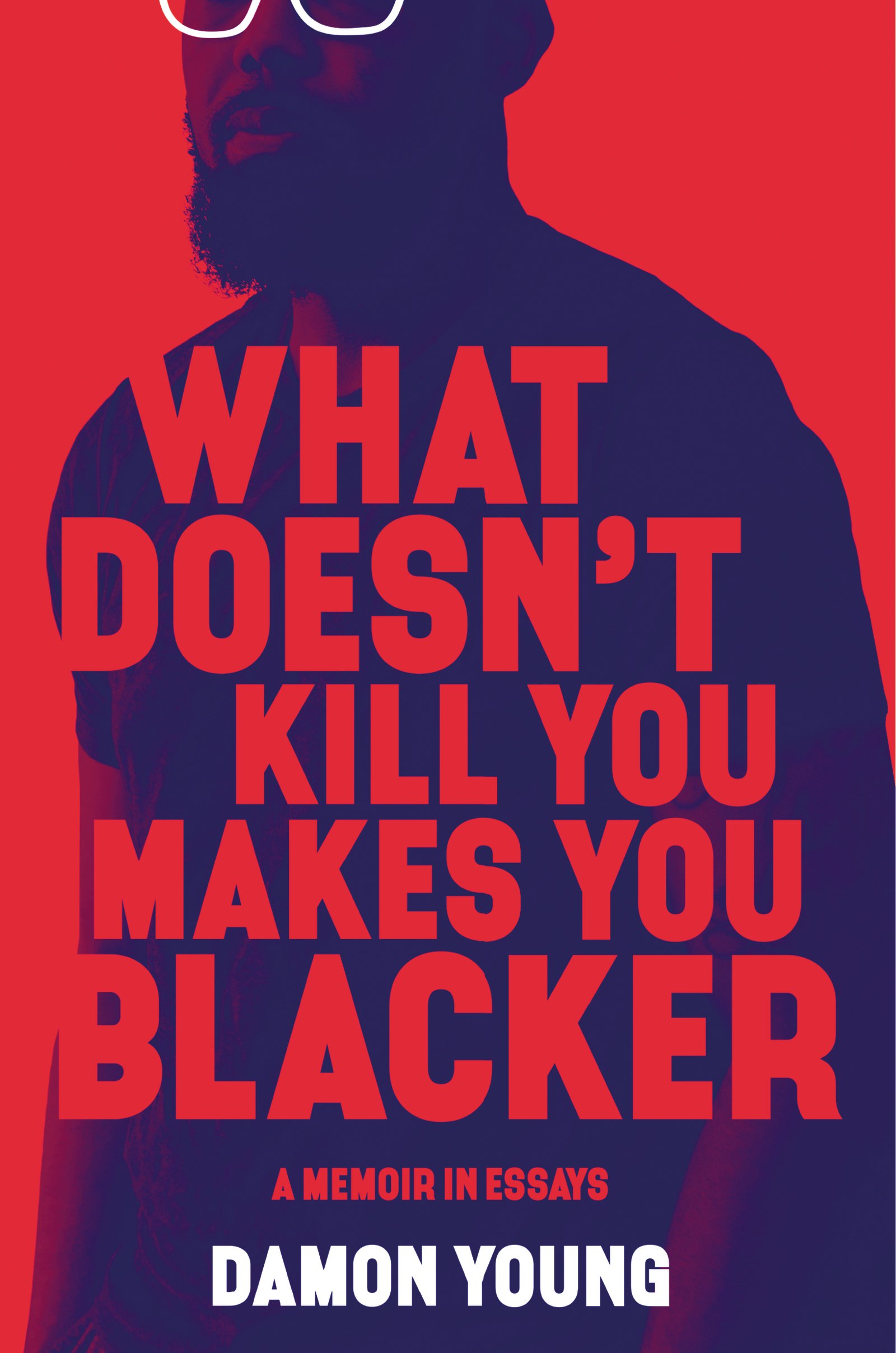 The 5 Titles series highlights books, music, and films in the library’s collection featuring topics related to diversity, equity, inclusion, and/or highlighting the work of authors from diverse backgrounds. Each post is intended to provide a brief sampling of titles rather than a comprehensive overview of the topic. This month, the five titles have been selected by RIS head Kim Duckett.
The 5 Titles series highlights books, music, and films in the library’s collection featuring topics related to diversity, equity, inclusion, and/or highlighting the work of authors from diverse backgrounds. Each post is intended to provide a brief sampling of titles rather than a comprehensive overview of the topic. This month, the five titles have been selected by RIS head Kim Duckett.
This month’s 5 Titles highlights a variety of memoirs by African American men published in the last decade. These authors share their own unique life experiences while providing valuable insights into how racism in the United States has impacted not only their own lives and but also the lives of their families, friends, students, colleagues, and clients.
 Heavy: An American Memoir by Kiese Laymon (2018; available in print or as an Overdrive ebook). The “Heavy” of Laymon’s powerful memoir refers to many kinds of heaviness: the weight of his body, the challenges of his personal history growing up, and the complexities of being Black and male in the United States. He writes of the heaviness of his mother’s deep and challenging love and the heaviness of physical and sexual abuse and racism around him as a youth in Mississippi. From his single mother, a poverty-stricken professor who is abused by the men in her life, he learns the “gifts of reading, rereading, writing, and revision.” Now, a writing professor himself, Laymon has shared a highly personal account with a focus on the weight of truth, heavy as it is to look at it squarely. Heavy: An American Memoir was named one of the 50 best memoirs of the past 50 years by the New York Times.
Heavy: An American Memoir by Kiese Laymon (2018; available in print or as an Overdrive ebook). The “Heavy” of Laymon’s powerful memoir refers to many kinds of heaviness: the weight of his body, the challenges of his personal history growing up, and the complexities of being Black and male in the United States. He writes of the heaviness of his mother’s deep and challenging love and the heaviness of physical and sexual abuse and racism around him as a youth in Mississippi. From his single mother, a poverty-stricken professor who is abused by the men in her life, he learns the “gifts of reading, rereading, writing, and revision.” Now, a writing professor himself, Laymon has shared a highly personal account with a focus on the weight of truth, heavy as it is to look at it squarely. Heavy: An American Memoir was named one of the 50 best memoirs of the past 50 years by the New York Times.
 Notes from a Young Black Chef: A Memoir by Kwame Onwuachi with Joshua David Stein (2019). In this memoir Onwuachi shares his story of growing up in the Bronx, steering towards drug-dealing in college, and finding his passion in cooking and exploring his family’s roots through food. His cooking talent leads him from scraping the resources together to open his own catering business, graduating from the Culinary Institute of America, competing on Top Chef, and realizing his dream of opening his own fine dining restaurant in Washington, D.C. All by the time he turned 27! Throughout he learns from the knowledge, skill, and tenacity of his mother, also a chef, whose roots are in Louisiana as well as his Nigerian heritage from his father, including time he spent in Nigeria as a boy. Onwuachi’s story provides valuable insight into the ups and downs of becoming a chef while also exploring issues of race in a very white male dominated profession. Each chapter is paired with one of Onwuachi’s recipes, which creatively ties his life story to the plate, a major theme of his approach to cooking.
Notes from a Young Black Chef: A Memoir by Kwame Onwuachi with Joshua David Stein (2019). In this memoir Onwuachi shares his story of growing up in the Bronx, steering towards drug-dealing in college, and finding his passion in cooking and exploring his family’s roots through food. His cooking talent leads him from scraping the resources together to open his own catering business, graduating from the Culinary Institute of America, competing on Top Chef, and realizing his dream of opening his own fine dining restaurant in Washington, D.C. All by the time he turned 27! Throughout he learns from the knowledge, skill, and tenacity of his mother, also a chef, whose roots are in Louisiana as well as his Nigerian heritage from his father, including time he spent in Nigeria as a boy. Onwuachi’s story provides valuable insight into the ups and downs of becoming a chef while also exploring issues of race in a very white male dominated profession. Each chapter is paired with one of Onwuachi’s recipes, which creatively ties his life story to the plate, a major theme of his approach to cooking.
 What Doesn’t Kill You Makes You Blacker: A Memoir in Essays by Damon Young (2019; available in print or as an Overdrive ebook). Young is co-founder and editor-in-chief of Very Smart Brothas, which the Washington Post coined “the blackest thing that ever happened to the internet,” and a columnist for GQ. In this insightful and often funny set of essays he shares stories from his life while exploring a wide range of issues that in one way or another highlight racism in the United States. Young’s self-reflection is notable for how insightfully he weaves together his personal experiences with commentary on systemic racism and reflections on masculinity.
What Doesn’t Kill You Makes You Blacker: A Memoir in Essays by Damon Young (2019; available in print or as an Overdrive ebook). Young is co-founder and editor-in-chief of Very Smart Brothas, which the Washington Post coined “the blackest thing that ever happened to the internet,” and a columnist for GQ. In this insightful and often funny set of essays he shares stories from his life while exploring a wide range of issues that in one way or another highlight racism in the United States. Young’s self-reflection is notable for how insightfully he weaves together his personal experiences with commentary on systemic racism and reflections on masculinity.
 Street Shadows: A Memoir of Race, Rebellion, and Redemption by Jerald Walker (2010). In this memoir Walker, a professor of creative writing at Emerson College, traces how he turned away from drug use and crime in his youth towards education and a move into the middle-class. He was raised by two blind parents on the South Side of Chicago and grew up as part of doomsday cult that shaped his early life. He interweaves chapters from his early life and teenage years with stories of attending community college in his late-twenties, graduating from the Iowa Writers Workshop, finding his way as a writer and academic, becoming a husband and father, and traveling to Africa. Throughout he explores issues of race and identity while considering the impacts of choices he and others – friends and family – make. Walker’s most recent book How to Make a Slave and Other Essays was a National Book Award 2020 finalist for nonfiction.
Street Shadows: A Memoir of Race, Rebellion, and Redemption by Jerald Walker (2010). In this memoir Walker, a professor of creative writing at Emerson College, traces how he turned away from drug use and crime in his youth towards education and a move into the middle-class. He was raised by two blind parents on the South Side of Chicago and grew up as part of doomsday cult that shaped his early life. He interweaves chapters from his early life and teenage years with stories of attending community college in his late-twenties, graduating from the Iowa Writers Workshop, finding his way as a writer and academic, becoming a husband and father, and traveling to Africa. Throughout he explores issues of race and identity while considering the impacts of choices he and others – friends and family – make. Walker’s most recent book How to Make a Slave and Other Essays was a National Book Award 2020 finalist for nonfiction.
 Just Mercy: A Story of Justice and Redemption by Bryan Stevenson (2014). Stevenson, the visionary founder and executive director of the Montgomery-based Equal Justice Initiative, is undeniably one of the most important voices in U.S. criminal justice reform. Even this statement feels like an understatement. In this powerful memoir, Stevenson recounts his work as a lawyer and tireless advocate for the wrongfully convicted, the unfairly tried, and the guilty deserving mercy. He weaves together details from specific cases to illustrate systematic failures in the criminal justice system with how he and his colleagues worked with their clients. His stories and the important historic context and legal background he provides are invaluable for shining a clear light on how the criminal justice system can be so unmerciful, so unjust, and so racist. Although a movie was made based on Just Mercy, nothing compares to hearing Stevenson speak for himself and give voice to the incarcerated he has worked with through reading his own words.
Just Mercy: A Story of Justice and Redemption by Bryan Stevenson (2014). Stevenson, the visionary founder and executive director of the Montgomery-based Equal Justice Initiative, is undeniably one of the most important voices in U.S. criminal justice reform. Even this statement feels like an understatement. In this powerful memoir, Stevenson recounts his work as a lawyer and tireless advocate for the wrongfully convicted, the unfairly tried, and the guilty deserving mercy. He weaves together details from specific cases to illustrate systematic failures in the criminal justice system with how he and his colleagues worked with their clients. His stories and the important historic context and legal background he provides are invaluable for shining a clear light on how the criminal justice system can be so unmerciful, so unjust, and so racist. Although a movie was made based on Just Mercy, nothing compares to hearing Stevenson speak for himself and give voice to the incarcerated he has worked with through reading his own words.
5 Titles is directed by the Research & Instructional Services (RIS) Department at Duke University Libraries.


